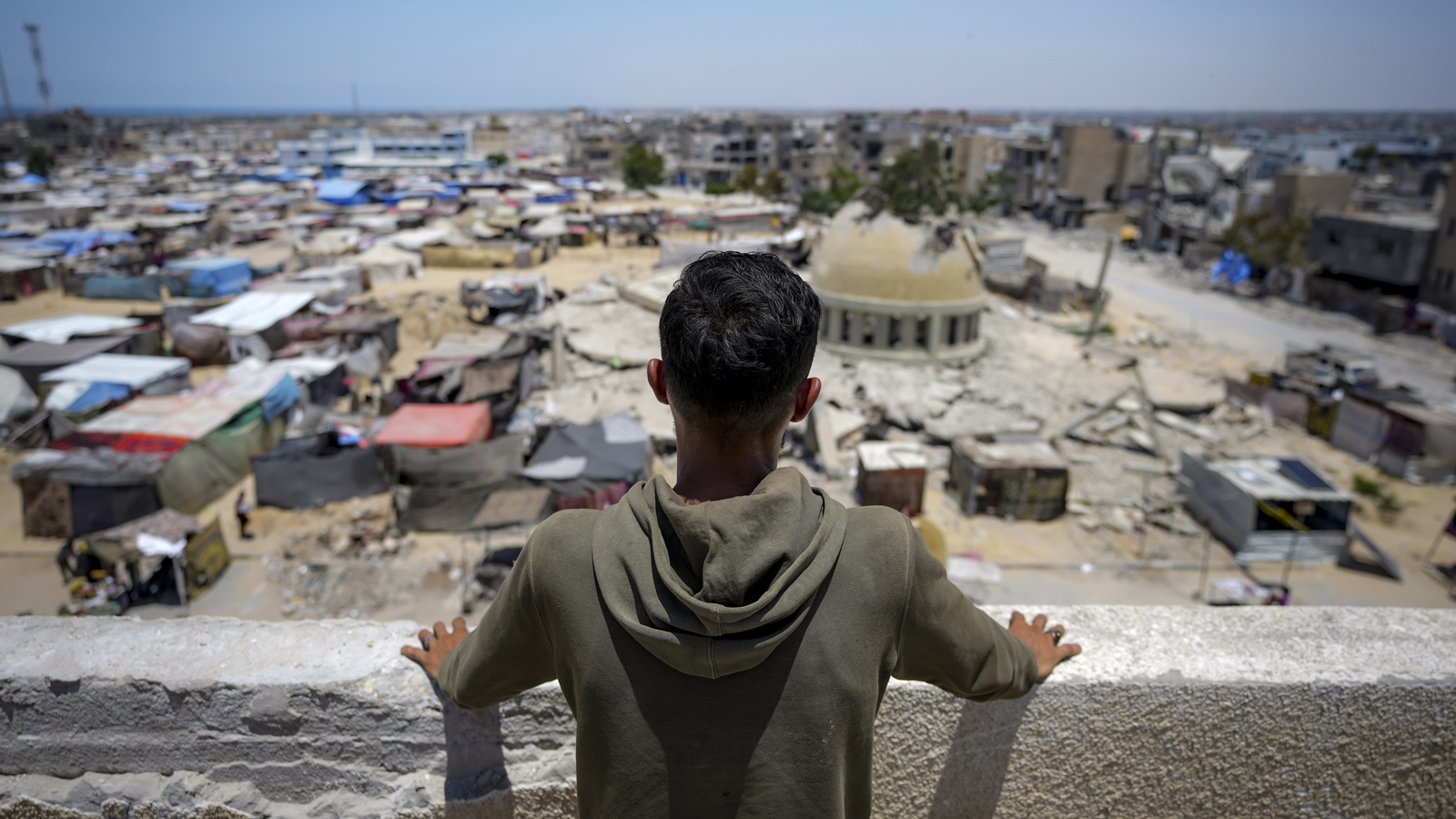Days after Israel began its onslaught on Gaza in retaliation to Hamas’s attack of October 7, with the intent — as its own leaders openly claimed — of seeking the complete elimination of Hamas and “total victory”, the US began casting aspersions on press releases from the Palestinian Health Ministry that had a count of the dead and the injured.
At a time when the ministry had documented the deaths of more than 7,000 Palestinians, President Joe Biden declared that he had “no confidence in the number that the Palestinians are using”, reiterating that “I have no notion that the Palestinians are telling the truth about how many people are killed.”
One might suppose that he was alluding only to the fact that in wartime, data on casualties is neither easily obtained nor verifiable. But there is something far more insidious at work here: In Western discourse, a supposed aversion to veracity among “Orientals” is an ingrained idea. Curzon, as Viceroy of India, exclaimed before students at Calcutta University that the Indian was accustomed to abiding by a much lesser standard of truth than the Englishman. If Palestinians are nothing more than “terrorists”, no one should doubt that they are liars and that they have greatly exaggerated casualties to win global sympathy.
However, nine months into the war, it is the credulity of Israel and the US that is at stake. On March 7, in his State of the Union address, Biden conceded that more than 30,000 Palestinians have been killed. The White House admitted that these figures were drawn from the Gaza Ministry of Health. Though two UN agencies — the WHO and the UN Office for the Coordination of Humanitarian Affairs — keep track of casualties in war zones, they have not done so in the present conflict; rather, they have furnished reasons for relying on figures released by the Gaza Health Ministry. As Farhan Haq, a spokesperson for UN Secretary-General Antonio Guterres, remarked at a press conference on May 15, “Unfortunately, we have the sad experience of coordinating with the Ministry of Health on casualty figures every few years for large mass-casualty incidents in Gaza; and in past times, their figures have proven to be generally accurate.”
The “correspondence” of July 5 published in the Lancet, the British medical journal, on “counting the dead” thus takes on new and, sadly, alarming significance. As of June 19, the journal reported, 37,396 people had died in Gaza; at least another 10,000 lie dead under the rubble of thousands of buildings now in ruins. This is scarcely new information; however, the picture that the Lancet paints of despair, desolation, disease, and death in Gaza is of a different magnitude. The authors contend, rightly, that in every such conflict, the proportion of “indirect deaths” to “direct deaths” is at least 3:1, sometimes as much as 15:1. Over time, a large number of people will succumb from reproductive, communicable and non-communicable diseases that will spread in consequence of the nearly complete destruction of Gaza. The health infrastructure is in shambles; desalination plants have been destroyed; and though famine has not officially been declared, malnutrition and starvation have already become widespread. According to the Lancet, it is reasonable to say that up to “1,86,000 or even more deaths could be attributable to the current conflict in Gaza.”
Some ask: Why is Israel apparently being singled out? After all, the last few decades alone have seen other conflicts — some of them, as in Guatemala, Rwanda, Sudan, and Syria, on a larger scale than what is on witness now in Gaza. However, Oxfam noted, around January 10, that “Israel’s military is killing Palestinians at an average rate of 250 people a day which exceeds the daily death toll of any other major conflict of recent years.” But there is much that is distinctive about this conflict. The US and the democracies of Western Europe, all erstwhile colonising powers, have condoned what Israel has done at every turn, despite for decades, shouting themselves hoarse with the slogan, “Never again”. But there is more to it: Israel tends to act with impunity while claiming special status as a victim nation.
There is nothing within the known pharmacopoeia of how international relations and violent conflict may be managed which enables the world to deal with such a situation. The International Court of Justice has, to simplify its ruling, issued restraining orders on Israel, but it has not made an iota of difference. Israel speaks of the International Criminal Court, which has requested arrest warrants in the name of two leaders each of Hamas and Israel, including Benjamin Netanyahu, with contempt. Nothing on the horizon suggests that Israel has any intention of changing its approach or that it is truly vulnerable even to pressure from the US.
The writer is professor of History, UCLA



